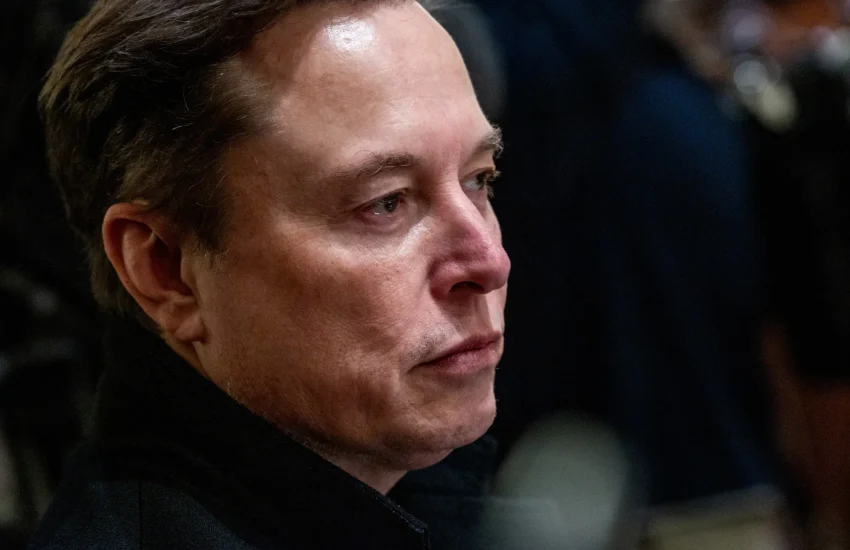Global Trumpism was always a strange phenomenon. Leaders across the world—Bolsonaro, Meloni, Modi, Milei—looked at Donald Trump as an authoritarian influencer. They mimicked his tone, his nationalism, and his contempt for institutions. They adopted his aesthetics of strongman politics, weaponized xenophobia, and press vilification, and swore they were putting their countries first. It worked for a while. Because Trump was over there, and they were over here.
But global Trumpism only functions when Trump stays in America. The second he turns his scorched-earth policies outward, the illusion shatters. You’re just another opponent in his unforced trade war, and your mimicked nationalism will meet its test.
This isn’t a theory. It’s happening right now. As a part of his “Liberation Day” scam, Trump has announced a 10% baseline tariff on all imports, with 34% on China, 20% on the EU, and 25% on autos and auto parts. The U.S. tariff rate exploded from 2.5% to 22% overnight—a rate last seen in 1910. And leaders who once praised him are now scrambling to respond.
Australia, one of the United States’s closest allies, called the move “not the act of a friend” as the nation’s rightwing opposition leader, Peter Dutton, joined a united front against Trump. Japan’s leadership has no illusions. South Korea is mobilizing emergency economic measures. Even nominal allies are not defending the man who emboldened their own strongman theatrics, but trying to protect themselves from him. Because the nature of Trumpist policy is extractive. It builds nothing. It shares nothing. It operates on the delusion that dominance can be eternal and mutual benefit is weakness.
This is not a populist renaissance. It’s economic arson. Regression disguised as strength. But what matters more is the collapse of the Trumpist mythos abroad. Trump was a brand, an archetype, a toolkit for the international far right. He offered a formula: stoke resentment, weaponize immigration, attack the media, wreck institutions, and claim it’s all in the name of the common man. He was the blueprint for nationalist insurgents trying to hijack democracies everywhere. But the play is only possible if the model stays generous. Or at least indifferent.
Trump is no longer indifferent. He’s targeting the very countries that embraced his aesthetic. And their leaders can’t follow him into this fire because their own nationalist bases demand they oppose foreign domination. This is where it cracks: if you’re an Australian, a German or a French conservative who once praised Trump, what do you do now that Trump is punishing your economy? You pivot. You claim sovereignty. You lean harder into your own nationalism. You turn against him.
And that’s the fatal contradiction in global Trumpism. It was a movement with no accommodation for multiplicity. It gave ideologues the pretence that they could elevate their nations, but in reality, it subjugated them to a singular, violent, hegemonic nationalism that tolerates no peers. The second two Trumpists collide on a global stage, one must submit. And no populist strongman ever built a following by bowing.
Now we get the backlash. The performative unity of the Trumpist international fractures because Trump himself has made clear that there are no partners, only targets. You’re either a tool for his domestic audience, or you’re in his way. It’s always been that simple.
The economic damage is real and vast. Analysts are warning of a global recession. Trade-dependent nations are watching their recovery plans evaporate. Debt-soaked countries face even more uncertainty as investor confidence tanks. The global supply chain, already battered, begins to seize.
The myth was that a new international axis of rightwing nationalism could stabilize into a new order. That Trump, Orban, Meloni, Milei, Modi—pick your avatar—would together redraw the map, break the institutions, and replace liberal democracy with a more muscular, tradition-driven authoritarianism.
But Trump doesn’t share. He demands fealty. And the others can’t afford to give it, not when their survival depends on resisting foreign power. Nationalism doesn’t cooperate across borders. It cannibalizes.
There is no Trump Doctrine that makes space for others. There is only Trump. And now that the U.S. is slamming tariffs on the very countries that aped his politics, the whole illusion shatters. There is no international Trumpist solidarity. There is no populist brotherhood of nations. There is only economic warfare and the unavoidable reality that a nationalist always needs a foreign enemy.
If you built your platform on the idea that your country should come first, you cannot justify bending the knee to a foreign autocrat who is actively wrecking your economy. So, the leaders who rode Trumpism to power must now pretend they never believed in him. They have no choice. Their nationalism demands it.
This is the terminal flaw of global Trumpism: it contains the seeds of its own betrayal. It sells sovereignty but delivers dependency. It promises strength but feeds on chaos. And now, as the world economy buckles under the weight of one man’s delusions, the rest of the nationalist world is waking up to the fact that Trump was never a friend, never an ally, never an example. Merely a wrecking ball looking for somewhere to swing.
Now, more than ever, the world needs an independent press that is unencumbered by commercial conflicts and undue influence.
By taking out an optional founding membership, you can help us build a free, accessible, independent news platform firewalled from corporate interests.
